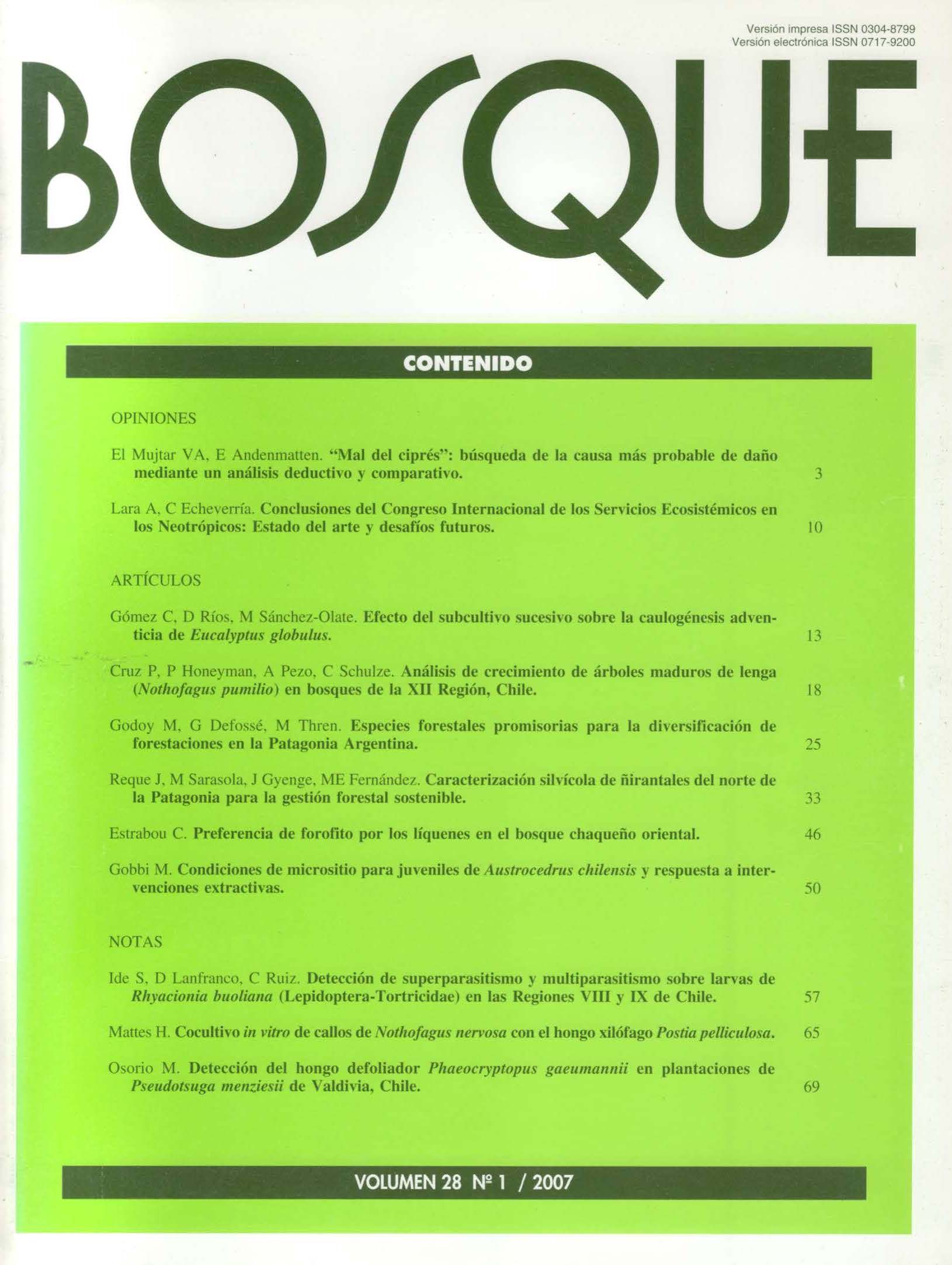Growing analysis of old lenga trees (Nothofagus pumilio) in forests at XII Region, Chile
Main Article Content
Abstract
This study analyzes growth on mature lenga (Nothofagus pumilio) individuals. The methodology includes stem analysis, using tree rings digital image processing measurement. Cutting slices from stems of 28 individuals of lenga were analyzed. Slices were taken at heights of 30 centimeters and 1 meter, and from there up, every 2 meters until the tree-top. The 210 slices obtained were moved to a portable laboratory, sandpapered, scanned, and their images imported to Arc-View software. Calculation of radius length for each tree ring was made via screen vectorization of each slice. Polynomic regressions were carried out to obtain the local functions for tree volume and diameter. Average volume in 200 years was 0.9 m3/tree. The dominant tree group volume was 1.4 m3/tree. It was established that 62% of the total volume was reached during the last 60 years (140 to 200 years). Besides, lenga maintains high growth rates (IMAvol and IPAvol) being determined that its maximum growth rate is found over that rank. Two silviculture yield predictors for long rotation silviculture, in stands without silvicultural management, were proposed (VAP and IVP). These predictors anticipated that the volume corresponding to a period of 200 years (0.9 m3/tree) would be reached 50 to 70 years earlier if silviculture management were to be applied. Software for image processing is an effective, accessible and viable procedure for tree ring measurement.

